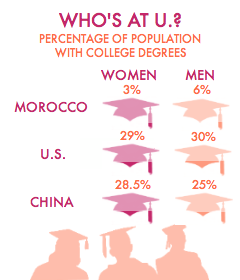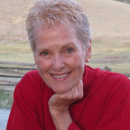
December 19, 2012 | War and Peace
“Choose a Passion. Enjoy a Ruckus.”
Change-the-world advice from global peacemaker Swanee Hunt.

Swanee Hunt has a famous last name—her father was legendary oil man H.L. Hunt—and a resume studded with heady accomplishments. To name just a few, she was ambassador to Austria; is president of Hunt Alternatives Fund, which promotes social change, especially on behalf of women; and is a lecturer in public policy at Harvard’s Kennedy School of Government.
But one of her most profound achievements has been founding Women Waging Peace, a network of more than 2,000 women peacemakers in conflict areas—ranging from Colombia to Congo to Sudan—that connects them with each other and with policy shapers. As Gloria Steinem has said of Hunt, she’s used her “power to support the powerless, and to encourage peace and women's leadership around the world.”
What made you start Women Waging Peace?
While an ambassador, I hosted Balkan peace negotiations where warring parties sent only men to the table. Later, I asked a UN official why there were no women in peace talks worldwide. He said warlords refused to have women because the women might compromise. I thought: Bingo! What if introducing women meant we could end a war three months sooner? Maybe even prevent one? We could save millions of lives, trillions of dollars.
As for the moment that compelled me, in 1999, I watched on TV the flood of refugees leaving Kosovo, knowing one in that exodus was my friend, the human rights hero Dr. Vjosa Dobruna. My husband found me rocking on the porch, tears streaming down my face. I told him then that I would devote the rest of my life to making sure women like Vjosa were empowered to prevent the horror of war.
What makes women particularly suited to brokering peace?
There are many reasons. I’ll focus on a few.
Women are especially good at working across ethnic, religious, political, and cultural divides. In Sri Lanka, mothers of young men missing in action went into the jungle to find the mothers of the rebels. They built trust across those deadly lines, creating an atmosphere of possibility for peace talks. There are hundreds of examples from Colombia, Iraq, Afghanistan, Cambodia, Liberia… every one of the 40 wars I’ve witnessed, actually.
Second, women usually have access men don’t. Partly because they’ve been excluded from formal power structures, they’re perceived as less threatening. In Somalia, for instance, women move physically between clans with a freedom men don’t have. During conflict, these women have served as first-line diplomats and mediators. They also band together to create “The Sixth Clan,” becoming actual signatories to the peace agreement.
Third, women have a deep understanding of community needs. In Darfur peace talks, women pushed to address not just where territorial lines would be drawn, but also mass rapes, murder, and hunger. Durable peace can take root, they said, only when basic needs are met. When the talks were stalled over who would get a certain river, it was the women in the room who announced that the river had dried up long before!
Who has influenced or inspired you?
Hillary Rodham Clinton. I’ve watched her up close for 20 years, and being around her has pushed me to think through my own focus and resolve. She’s a woman of extraordinary intellect, decisiveness, complexity, self-understanding, and practiced contemplation.
We’ve shared so many informal moments: On lengthy Air Force One excursions… an impromptu music fest in Salzburg… mothering our daughters… in the back seat of a car deliberating military intervention to stop a slaughter…. I’ve also watched her wow huge audiences, as she did at our original 1997 Vital Voices conference in Vienna. (Back to what I was saying above, she actually hosted the White House roll-out of Women Waging Peace thirteen years ago.)
But her empathy especially has inspired me, because I’ve seen her concern for others, even after a grueling 20-hour day. She’s the whole package – personal warmth, analytical brilliance, and dedication to public service, with service being the watchword.
What advice do you have for young women who want to make a difference in the world?
Choose a passion. Grasp risk. Enjoy a ruckus. Co-conspire. Wage on.
What makes you optimistic?
In the U.S 18.6 percent of members of Congress are women. The bad news is that there are 78 countries with more. The good news is that there are 78 countries with more.